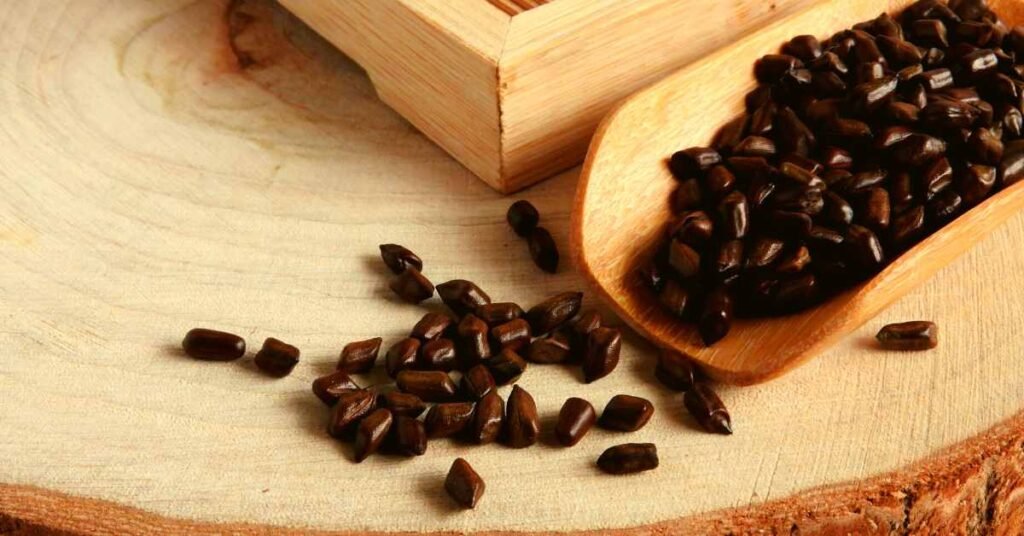Cassia seed tea, derived from the seeds of the Cassia plant, has been gaining popularity in recent years for its numerous health benefits and soothing properties.
Originating from East Asia, this herbal infusion has a rich history dating back centuries.
In this article, we will delve into the properties, benefits, uses, origin, and some interesting facts surrounding cassia seed tea.
I. Properties of Cassia Seed Tea

Cassia seed tea is renowned for its rich nutritional profile and therapeutic properties.
The tea is typically brewed from the dried seeds of the Cassia plant, a member of the legume family.
The seeds contain a variety of essential compounds, including flavonoids, saponins, and essential oils.
These compounds contribute to the tea’s unique flavor and potential health benefits.
One notable property of cassia seed tea is its mild laxative effect. The tea has been traditionally used to promote healthy digestion and alleviate constipation.
Additionally, cassia seeds are a good source of antioxidants, which help combat oxidative stress in the body and support overall well-being.
II. Benefits of Cassia Seed Tea
- Digestive Health: Cassia seed tea has been lauded for its digestive benefits. The mild laxative properties of the tea can help regulate bowel movements and relieve constipation. Regular consumption may contribute to a healthier digestive system.
- Weight Management: Some studies suggest that cassia seed tea may aid in weight management. The tea’s ability to support digestion and metabolism could potentially contribute to weight loss efforts when combined with a healthy diet and regular exercise.
- Eye Health: Cassia seeds contain compounds that are believed to promote eye health. Traditional Chinese medicine often recommends cassia seed tea for individuals experiencing discomfort or dryness in the eyes. Regular consumption may contribute to maintaining optimal eye function.
- Antioxidant Support: The antioxidants found in cassia seed tea help neutralize free radicals in the body, reducing oxidative stress. This, in turn, may contribute to a lower risk of chronic diseases and support overall health.
- Blood Sugar Regulation: Some research suggests that cassia seed tea may help regulate blood sugar levels. This potential benefit could be of interest to individuals managing diabetes or those looking to maintain stable blood sugar levels.
III. Uses of Cassia Seed Tea

- Herbal Infusion: The most common use of cassia seed is as a herbal infusion. To prepare the tea, simply steep a teaspoon of dried cassia seeds in hot water for about 5-10 minutes. The resulting beverage has a mild, slightly nutty flavor with subtle hints of sweetness.
- Culinary Applications: Cassia seed tea can also be incorporated into culinary creations. The seeds can be ground into a powder and added to baked goods, smoothies, or even used as a spice in certain dishes. This allows individuals to enjoy the nutritional benefits of cassia seeds in various forms.
- External Use: In some traditional practices, cassia seed tea is used externally to soothe irritated skin conditions. The anti-inflammatory properties of the tea may provide relief for conditions such as eczema or dermatitis when applied topically.
IV. Origin of Cassia Seed Tea
Cassia seed tea traces its roots to East Asia, where it has been an integral part of traditional medicine for centuries.
The Cassia plant, scientifically known as Cassia obtusifolia or Cassia tora, is native to countries such as China and India.
The seeds are harvested from the plant, dried, and then used to brew the tea.
In traditional Chinese medicine, cassia seeds are classified as a “cooling” herb, believed to help balance the body’s internal heat and provide a range of health benefits.
Over time, the use of cassia seed tea has spread to other parts of the world, gaining recognition for its potential wellness-enhancing properties.
V. Interesting Facts about Cassia Seed Tea

- Historical Significance: Cassia seeds have a long history of use in traditional Chinese medicine, where they were often employed to address issues related to the eyes, liver, and intestines. The ancient healing practices recognized the potential of cassia seeds in promoting overall health and well-being.
- Cultural Importance: In some cultures, cassia seed tea is not only valued for its health benefits but also for its cultural significance. It is often served during special occasions, celebrations, or as a gesture of hospitality.
- Sustainable Agriculture: Cassia plants are hardy and well-suited to various climates, making them relatively easy to cultivate. This has contributed to the sustainable production of cassia seeds, ensuring a steady supply for tea enthusiasts around the world.
- Varied Culinary Uses: Beyond tea, cassia seeds find their way into various culinary creations. The ground seeds can be added to soups, stews, or desserts, providing a unique flavor profile along with potential health benefits.
Final Word
Cassia seed tea, with its rich history, diverse properties, and numerous health benefits, stands as a versatile and valuable herbal infusion.
As interest in natural remedies and traditional healing practices continues to grow, cassia seed tea has carved its niche as a soothing elixir that not only pleases the palate but also contributes to overall well-being.
Whether enjoyed for its digestive support, potential weight management benefits, or its historical significance, cassia seed tea invites us to explore the world of herbal remedies and embrace the healing power of nature.




